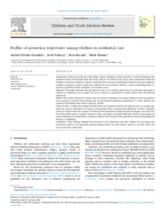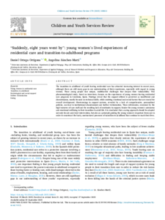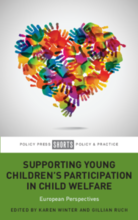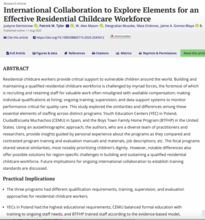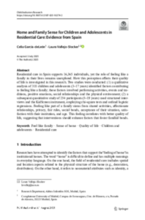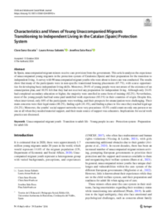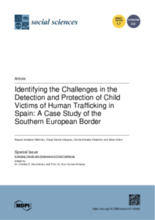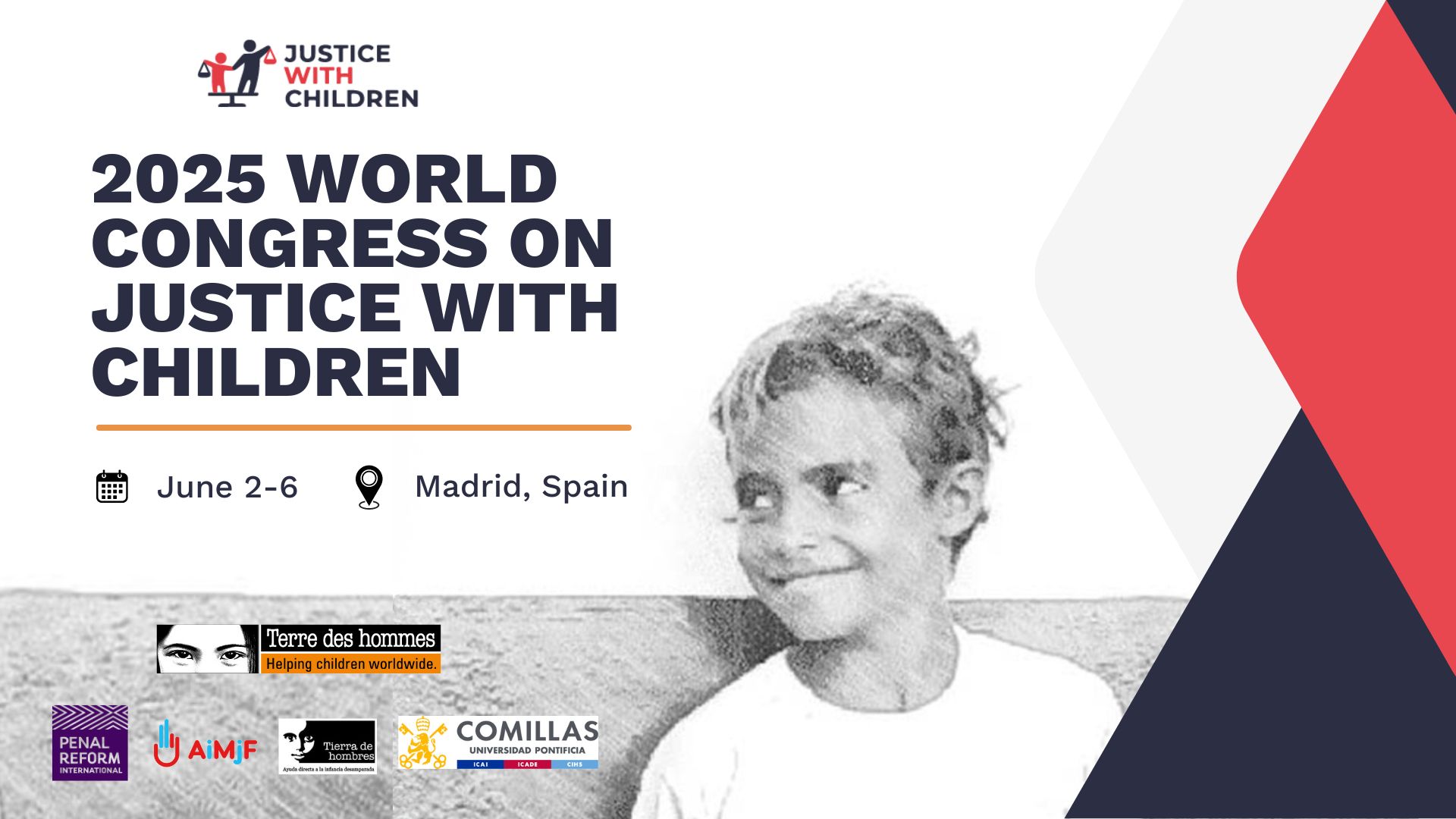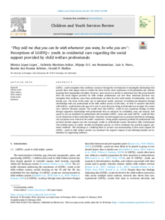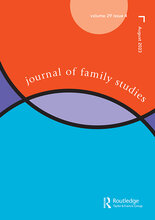Displaying 1 - 10 of 150
This study examined protection trajectory patterns among 49 children who experienced residential care in Spain, identifying three distinct profiles through cluster analysis of case-file and psychosocial assessment data. The findings reveal diverse pathways—ranging from early transitions to family-based care, to unstable trajectories marked by multiple placements and higher adversity, to prolonged but stable residential care often involving diagnosed illnesses or disabilities—offering important insights for strengthening child protection decision-making and promoting stable, secure care experiences.
This study explores the experiences of young women leaving residential care in Catalonia, Spain, revealing that limited, inconsistent support—focused mainly on technical skills—neglects their emotional and social needs. It calls for a caring, individualized approach to guide their transition to adulthood and prevent further vulnerability and institutional abandonment.
This Policy and Practice Short has emerged from an Erasmus+ Key Action 2 project funded by the European Union (EU). The project has become known as the PANDA project, an acronym drawn from the words participation and collaboration for action, and its focus is on promoting the participation rights of young children, aged 12 and under in child welfare and child protection.
This study compares residential childcare workforce practices across programs in Poland, Spain, and the United States, examining recruitment, training, supervision, and performance monitoring. Findings reveal both shared priorities, such as upholding children’s dignity, and region-specific differences that suggest potential solutions and highlight the value of international collaboration to strengthen training standards.
This research explores how the perception of “feeling like a family” impacts the quality of life for children and adolescents in residential care in Spain. Findings from both qualitative and quantitative studies show that shared activities, affectionate relationships, and supportive environments foster this sense of family, which in turn is strongly linked to improved well-being.
This article analyzes the experience of unaccompanied young migrants in the protection system of Catalonia (Spain) and their preparation for the transition to independent living. A survey with 90 unaccompanied migrant youths who were about to leave care was conducted.
Analyzing 23 interviews with professionals in the field, this article identifies the factors that contribute to high levels of child trafficking in Spain.
The focus of this study was to understand youths’ processes of resilience-development through relationships with care professionals in the child welfare system. In this study, the authors held 15 narrative interviews with LGBTQ+ youth between the ages of 14 and 21 years that were living in residential care in Spain.
This study aims to develop an understanding of the distinctive features of kinship and non-kin foster care based on information obtained from fostered children and child care professionals in Spain.

